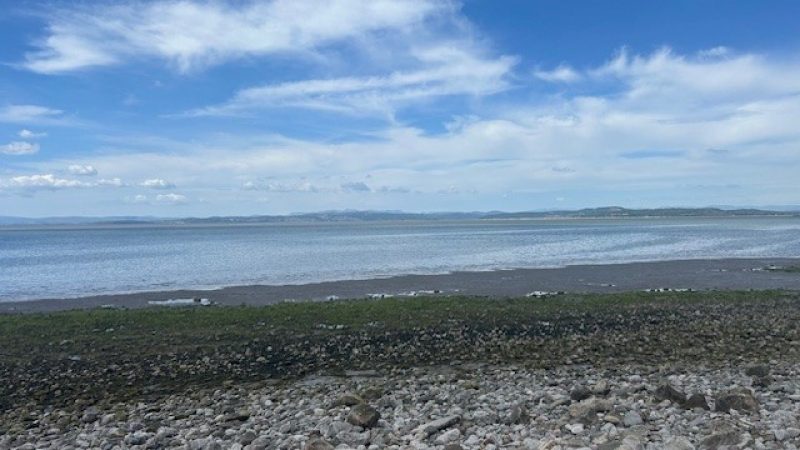Cllr Tudor Evans, Leader of Plymouth City Council & Key Cities lead for Coastal Communities:
It has become increasingly apparent that our coastal towns and cities are severely lacking the support they require to thrive. Despite government promises to “rebuild Britain” over the past few decades, coastal economic output remains 26% below the UK average. Disparities in health outcomes, education, infrastructure, employment and climate risk continue to grow. Some disadvantaged coastal communities are fundamentally disconnected from the sea; due to the lack of programmes and resources, children in these areas often do not know how to swim.
In recent years, initiatives have been introduced to boost local coastal economies, such as the £1 million funding for nine UK Maritime Clusters and the Coastal Communities Fund, which invested £229 million in 369 projects across the UK. However, these efforts are insufficient to combat more than half a century of decline. Britain’s traditional coastal communities remain markedly disadvantaged compared with their inland counterparts, due to policy criteria such as the Treasury Green Book’s Land Value Uplift (LVU) calculation, which unfairly disadvantages coastal areas.
Numerous organisations have called for greater attention to be paid to seaside towns and cities over the last two decades, and there is renewed focus from the newly established Coastal Labour Group and from Key Cities, which has ports and coastal communities as one of its key portfolio areas. There is a growing awareness of the important role of coastal communities in national economic growth, not to mention the outsize potential of their contribution to net zero goals through renewable technologies such as floating offshore wind farms and achieving carbon-efficient freight movement via ports.
Waterfront cities and towns, with their unparalleled access to power, unique growth clusters and regeneration opportunities, are key to driving local as well as national growth, in line with the government’s agenda.
Key Cities recently published the “On the Waterfront” report, outlining a call for immediate action to revive coastal towns and cities. Produced by the Key Cities Innovation Network, the report draws on the experiences of local authorities and stakeholders, from GPs to harbour masters and nature activists, and is underpinned by extensive research from member universities across the network coordinated by the University of Plymouth. Ports and coastal communities are an important policy area for Key Cities, which represents 12% of the UK’s population outside the capital and contributes more than £150 billion a year to the UK economy. Many of our members have significant coastal areas within their jurisdiction or close links with nearby coastal communities and ports.
The report sets out a strategic framework of 28 recommendations which we believe could empower, connect, protect and drive investment in the UK’s ports and coastal communities to reposition them as centres of growth and creativity – breathing life back into the coast. The recommendations include: engaging with local communities to co- design hyperlocal public services and place strategies; coordinating policy and delivery across government through a cross-departmental task force for coastal regions, including urban coastal areas and coastal communities which have been displaced from their historical proximity and identification with the sea; establishing long-term funding streams and reviewing the adverse effects of the LVU criteria regarding coastal areas to adequately reflect deprivation and opportunities.
The uniqueness of coastal communities compared with their inland counterparts requires a renewed focus and coherent, tailored strategies if we are to succeed in fostering economic resilience, social equity and environmental stewardship in these areas.
The partnership between the communities and local authorities who will defend the preservation of the coast’s heritage is crucial. As one example, Plymouth Sound National Marine Park was designated the UK’s first national marine park in 2019, an idea first mooted by Professor Martin Attrill at the University of Plymouth, Luke Pollard MP, and myself. Currently, it is acting as the glue between coastal community stakeholders by organising various programmes including: the Horizons Project to sensitively restore waterfront, public realm and habitats; the Sea in Our School educational programme, which will target up to 1,000 students across 30 schools in Plymouth; the Nature Programme, which aims to connect communities with the rich marine life; and the flagship Sea for Yourself cultural programme to reconnect Plymouth residents with the sea.
Revitalisation of our coastal towns and cities is not just a regional issue but a national imperative. By harnessing the unique strengths of our coastal communities and investing in their future, we can create vibrant, resilient and sustainable economies. We hope that the “On the Waterfront” report will catalyse urgent action from all levels of government, local authorities and the communities themselves to ensure that our coastal areas are not left behind but are instead celebrated and supported as vital contributors to the nation’s prosperity and well-being.



